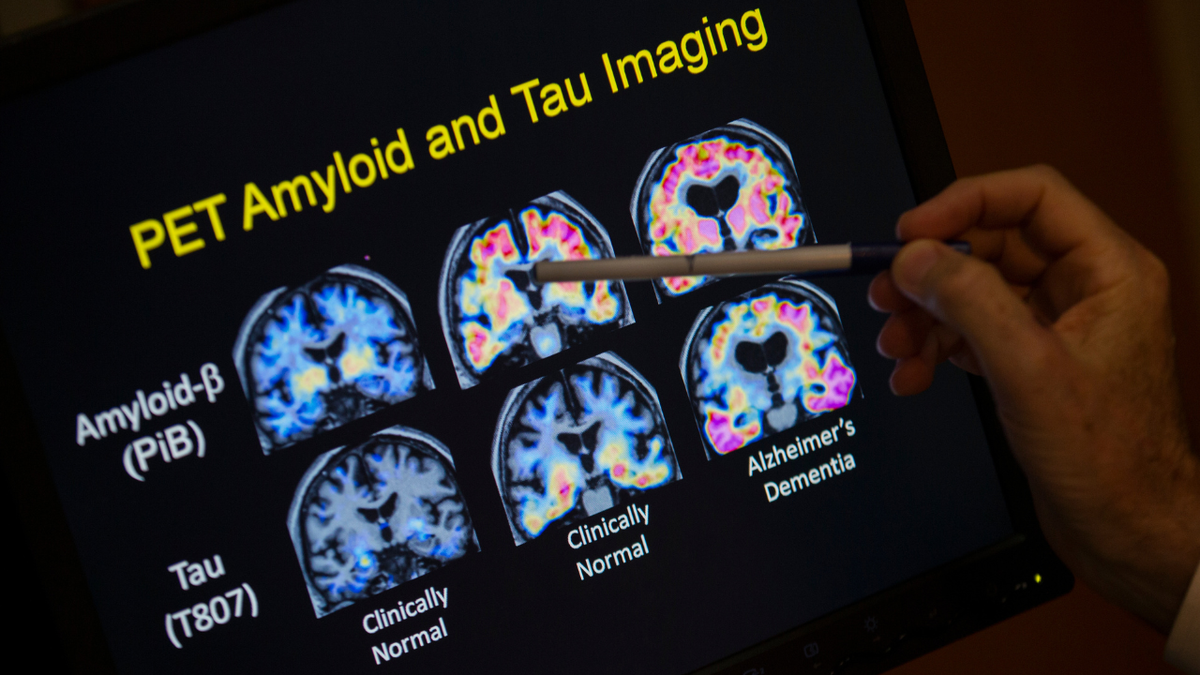Two widely touted Alzheimer’s drugs have been shown to enable patients to remain in their homes, living independently, for longer periods of time.
Those medications, while effective, are not without their risks and side effects, however.
That’s according to a recent study published last week in the Alzheimer’s Association journal.
RED MEAT COULD RAISE DEMENTIA RISK, RESEARCHERS CLAIM, YET SOME DOCTORS HAVE QUESTIONS
Researchers at Washington University School of Medicine in St. Louis analyzed how long 282 Alzheimer’s patients were able to continue living independently after taking two specific treatments: lecanemab (Leqembi) and donanemab (Kisunla).
Both FDA-approved medications are designed to remove amyloid beta plaques from the brains of people with early-stage Alzheimer’s disease, potentially slowing the rate of cognitive decline.
Patients who took lecanemab extended their time at home for an additional 10 months, while donanemab enabled them to live independently for eight more months, according to a WashU press release.
MEMORY LOSS ISN’T ALWAYS ALZHEIMER’S: EXPERTS WARN OF COMMON BUT LITTLE-KNOWN DEMENTIA
On average, a patient with mild symptoms could expect to live independently for another 29 months without treatment, 39 months with lecanemab and 37 months with donanemab, according to the release.
These results were based on patients who began treatment with “very mild symptoms.”
“If you think of the cost and consequences of not being able to live independently, this may be significant to many older adults.”
“Using the data from the clinical trials, we calculated that, for an average patient with very mild symptoms due to Alzheimer disease dementia, treatment with either lecanemab or donanemab would be expected to extend independent living for around one year,” senior author Sarah Hartz, MD, PhD, a professor of psychiatry at WashU Medicine, told Fox News Digital.
“If you think of the cost and consequences of not being able to live independently, this may be significant to many older adults.”

This study gives patients and their families a way to translate clinical trial findings into meaningful outcomes, according to Hartz.
“For example, if a patient is considering taking lecanemab or donanemab to treat their AD, part of the discussion with their doctor can be how long they would expect the drug to prolong their independence, both in terms of being able to live independently and being able to independently care for their own bodies.”
3 SIGNS YOUR AGING LOVED ONE MAY BE READY FOR ASSISTED LIVING
The purpose of the study is not to advocate for or against these medications, Hartz noted in a press release. “The purpose … is to put the impact of these medications into context in ways that can help people make the decisions that are best for themselves and their family members.”
Christopher Weber, Ph.D., senior director of global science initiatives at the Alzheimer’s Association, was not involved in the study but shared his input with Fox News Digital.

“This study suggests that these drugs have a clinically meaningful impact for early Alzheimer’s patients and their families by providing more time in the early stages of the disease, when patients have more functional independence,” he said.
The study findings highlight the importance of starting treatment early to maximize the potential benefits, according to Weber, as starting at a more advanced point resulted in fewer months of independence.
“The advances we’re seeing in Alzheimer’s treatments build upon decades of research, and underscore the importance of continued innovation and investment in this field in order to better understand the underlying biology and trajectory of the disease, detect it earlier, and effectively treat and prevent it,” he added.
Potential risks and limitations
The biggest limitation of the study, according to Hartz, is that the participants were very dedicated to Alzheimer’s research and were typically highly educated.
“We don’t know how well our findings translate to the rest of the population,” she acknowledged.

Dr. Chris Vercammen, a board-certified internal medicine physician who specializes in geriatrics and palliative care, emphasized that while the two drugs can extend periods of independence for people with Alzheimer’s, “lecanemab and donanemab do not stop or reverse Alzheimer’s disease.”
“It’s also important to understand that these new drugs are only beneficial for individuals in the early stages of the disease,” the doctor, who is also medical director at Remo Health in California, told Fox News Digital. (Vercammen was not involved in the new study.)
CLICK HERE TO SIGN UP FOR OUR HEALTH NEWSLETTER
Anyone considering these treatments should have an “in-depth conversation” with a doctor about the potential benefits and weigh them against the “significant risks” involved, according to Vercammen.
“These risks include the possibility of serious side effects, such as brain swelling and bleeding, as well as the substantial financial costs associated with treatment, even if you have insurance coverage,” he cautioned.
“These new drugs are only beneficial for individuals in the early stages of the disease.”
For people that may benefit from these treatments, Hartz recommend that they talk to their doctors and review the potential risks and benefits.
For more Health articles, visit www.foxnews.com/health
“This information could help contextualize how the medications may benefit them in terms of independence,” she added.
Fox News Digital reached out to the makers of Leqembi and Kisunla to request comment.
Read the full article here








